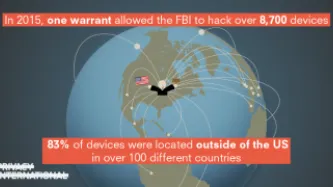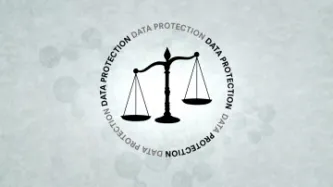Search
Content type: News & Analysis
Creative Commons Photo Credit: Source
In September 2018, a month after Argentina lawmakers voted against the legalisation of abortion, we spoke to Eduardo Ferreyra from the Buenos Aires-based Asociacion por los Derechos Civiles about the role of privacy in the abortion debate. Also joining us in this second episode of the Gender and Privacy Series is Ambika Tandon from the Centre for Internet and Society in India to discuss the intersection between privacy and bodily autonomy.…
Content type: Examples
Days before the US November 2018 midterm elections, ProPublica discovered that an organisation called Energy4US spent $20,000 to run ads on Facebook pushing conservatives to support the Trump administration's reversal of fuel emission standards. On closer scrutiny, Energy4US appeared to be a front organisation for the trade association American Fuel and Petrochemical Manufacturers, which numbers the world's largest oil companies among its members. Although Facebook's announced requirement that…
Content type: Examples
In the run-up to the US 2018 mid-term elections, Facebook announced it would broaden the company's policies against voter suppression by banning misrepresentations about how to vote and whether a vote will be counted. The company also introduced a reporting option to allow users to report incorrect information and dedicated reporting channels for state election authorities. The company noted it was getting better at detecting and removing fake accounts and increasing transparency about…
Content type: Advocacy
Consumers benefit from the existence of competitive markets, in which they can freely choose among a wide range of products and services. Competition policy plays an important role in this regard by ensuring that competition is not disrupted in a way that can harm consumers directly (e.g. leading to price increases or less choice) or indirectly (e.g. weakening competition as a process by hampering the ability of firms to compete on the merits).
Content type: Examples
In May 2018, US Immigration and Customs Enforcement abandoned the development of machine learning software intended to mine Facebook, Twitter, and the open Internet to identify terrorists. The software, announced in the summer of 2017, had been a key element of president Donald Trump's "extreme vetting" programme and expected to flag at least 10,000 people a year for investigation. ICE decided instead to opt for a contractor who could provide training, management, and human personnel to do the…
Content type: News & Analysis
Our team wanted to see how data companies that are not used to being in the public spotlight would respond to people exercising their data rights. You have the right under the EU General Data Protection Regulation ("GDPR") to demand that companies operating in the European Union (either because they are based here or target their products or services to individuals in the EU) delete your data within one month. We wrote to seven companies and requested that they delete our data, and we've made…
Content type: Advocacy
Today, Privacy International has filed complaints against seven data brokers (Acxiom, Oracle), ad-tech companies (Criteo, Quantcast, Tapad), and credit referencing agencies (Equifax, Experian) with data protection authorities in France, Ireland, and the UK.
It’s been more than five months since the EU’s General Data Protection Regulation (GDPR) came into effect. Fundamentally, the GDPR strengthens rights of individuals with regard to the protection of their data, imposes more…
Content type: News & Analysis
Image Source
On 10 October 2018, the US Senate Committee on Commerce, Science, and Transportation, will convene a hearing titled “Consumer Data Privacy: Examining Lessons From the European Union’s General Data Protection Regulation and the California Consumer Privacy Act".
The Senate will hear from:
Dr. Andrea Jelinek, Chair, European Data Protection Board
Mr. Alastair Mactaggart, Board Chair, Californians for Consumer Privacy
Ms. Laura Moy, Executive Director and Adjunct…
Content type: News & Analysis
Image attribution: By Blue Diamond Gallery CC BY-SA 3.0.
In March 2017, when the UN Human Rights Council requested the High Commissioner for Human Rights to prepare a report on the right to privacy in the digital age, including the responsibility of business enterprises, Cambridge Analytica was an obscure company among others. A year later the data exploitation scandal erupted, leading to plenty of soul searching by politicians in US, UK, Europe and elsewhere, pledges of…
Content type: News & Analysis
This piece was originally published on Just Security.
Ten years ago, an FBI official impersonated an Associated Press reporter to lure and track a teenager suspected of sending in prank bomb threats to his school. To find him, the FBI agent, posing as a reporter, sent the teenager links to a supposed story he was working on, but the links were infested with malware that once clicked on quickly exposed the teen’s location. More recently, the FBI has seized and modified websites so…
Content type: News & Analysis
Creative Commons Photo Credit: Source
Just about everyone in Washington has found something to dislike about the tech industry: Democrats especially, are worried about foreign interference in the 2016 election — meanwhile some Republicans are more concerned about bias against conservatives of platforms and on top of it all President Trump has been tweeting about antitrust and competition.
Privacy International is a vocal critic of data exploitation more generally, and the systemic…
Content type: News & Analysis
Around the world, from North America to Europe and Asia, governments are starting to roll out smart meters. While the technology promises increased energy efficiency through greater consumer control over energy consumption, smart meters also raise serious privacy concerns. Smart meters collect energy usage data at high frequencies - typically every five, fifteen or 30 minutes. That level of granularity reveals how much electricity is being used in a home and when, which in turn can paint an…
Content type: News & Analysis
This piece originally appeared here.
Creative Commons Photo Credit: Source
Tech competition is being used to push a dangerous corporate agenda.
High-tech industries have become the new battlefield as the United States and China clash over tariffs and trade deficits. It’s a new truism that the two countries are locked in a race for dominance in artificial intelligence and that data could drive the outcome.
In this purported race for technological high ground, the argument often goes, China…
Content type: Long Read
Creative Commons Photo Credit: Source
In the midst of continued widespread public outrage at the US government’s brutal ‘zero-tolerance’ policy around immigration – multiple data and analytics companies have quietly avoided answering questions about their role in feeding the US Immigration and Customs Enforcement (ICE) agency’s data backbone. These companies are bidding to work with an agency that has time and time again shown itself to be a brutal and problematic.
Privacy International…
Content type: Report
Privacy International welcomes the opportunity to file these comments in advance of the Federal Trade Commission’s public hearings on competition and consumer protection in the 21st century.
Content type: Report
Countries with powerful security agencies are spending literally billions to equip, finance and train security and surveillance agencies around the world — including authoritarian regimes. This is resulting in entrenched authoritarianism, further facilitation of abuse against people, and diversion of resources from long-term development programmes.
Privacy International's report 'Teach 'em to Phish: State Sponsors of Surveillance' examines this problem closely, providng examples from US, China…
Content type: Long Read
Privacy International (PI) has today released a new report, 'Teach 'em to Phish: State Sponsors of Surveillance', showing how countries with powerful security agencies are training, equipping, and directly financing foreign surveillance agencies.
Spurred by advances in technology, increased surveillance is both powered by and empowering rising authoritarianism globally, as well as attacks on democracy, rights, and the rule of law.
As well as providing a background to the issue, the report…
Content type: Press release
Privacy International has today released a report that looks at how powerful governments are financing, training and equipping countries — including authoritarian regimes — with surveillance capabilities. The report warns that rather than increasing security, this is entrenching authoritarianism.Countries with powerful security agencies are spending literally billions to equip, finance, and train security and surveillance agencies around the world — including authoritarian regimes. This is…
Content type: Press release
Gus Hosein, Executive Director of Privacy International:
The US federal government's cruel zero tolerance immigration policy has received widespread and international condemnation. In addition to the policy's clear moral failure it is also in violation of the government's legal obligations under the International Covenant on Civil and Political Rights (ICCPR), which includes protecting families from unnecessary interference by the government.
The US government needs to understand that…
Content type: News & Analysis
Actualmente, las empresas tecnológicas se encuentran inmersas en constante cambio. Uno de ellos es la creciente importancia que ha cobrado la seguridad digital, convirtiéndose en una prioridad. Que un emprendimiento resguarde su seguridad digital significa que puede gestionar los riesgos asociados a mantener la confidencialidad, integridad y disponibilidad de su información.
En este contexto, resulta de gran relevancia que las personas responsables del emprendimiento digital y el…
Content type: News & Analysis
El objetivo es facilitar a la sociedad civil una guía para la navegación de este organismo, efectuar un diagnóstico que permita situar cualquier persona interesada sobre la actualidad de la temática a nivel regional y descubrir la agenda de seguridad digital que sostiene la OEA en el continente.
Finalmente, concluimos con una serie de breves recomendaciones dirigidas a los organismos de la OEA. Con ello, esperamos que este órgano reconozca el papel que puede jugar como catalizador en el…
Content type: Press release
On the five year anniversary of NSA whistleblower Edward Snowden leaking a massive trove of classified information that has since transformed our understanding of government mass surveillance, Dr Gus Hosein, Executive Director of Privacy International said:
“Is it enough for your government to tell you ‘we’re keeping you safe, but we’re not going to tell you how’? Edward Snowden asked himself this profoundly important question five years ago. We’re thankful he did.
His decision to expose the…
Content type: Advocacy
Social media, which can include a wide range of online platforms and applications, can be revealing and sensitive, making any collection or retention highly invasive. The effect would be unjustified intrusion into the private lives of those affected, undermining their freedom of speech and affecting everyone in their networks, including US citizens.
By normalising the practice internationally, other state authorities may reciprocate by demanding social media handles of US citizens,…
Content type: Advocacy
Today Privacy International, with TACD, published a document detailing 10 things that US companies need to know about the forthcoming General Data Protection Regulation (GDPR).
People’s data should be treated with the highest privacy protections no matter where they are based. Privacy is a fundamental human right and data protection is intrinsically linked to it. While GDPR is not perfect, it does provide enforceable rights and obligations. If US companies want to demonstrate true commitment…
Content type: Examples
A data breach at the Internet Research Agency, the Russian troll farm at the centre of Russia's interference in the 2016 US presidential election, reveals that one way the IRA operated was to use identities stolen from Americans. Using these accounts and other fake ones, the troll farm interacted via social media with genuine US activists and recruited them to participate in and help organise rallies, all in the interests of aggravating long-standing American social divisions.
https://…
Content type: Examples
According to whistleblower Christopher Wylie, during the 2014 US midtern elections, Cambridge Analytica, needing data to complete the new products it had promised to political advisor Steve Bannon, harvested private information from the Facebook profiles of more than 50 million users without their permission. There was enough information about 30 million of these users to match them to other records and build psychographic profiles.
After the news became public in March 2018, Facebook…
Content type: Examples
A former Facebook insider explains to Wired Magazine why it's almost certain that the Trump campaign's skill using the site's internal advertising infrastructure was more important in the 2016 US presidential election than Russia's troll farm was. The first was the ads auction; the second a little-known product called Custom Audience and its accompanying Lookalike Audiences. Like Google's equivalent, Facebook's auction has advertisers bid with an ad, an ideal user specification, and a bid for…
Content type: Examples
Caucuses, which are used in some US states as a method of voting in presidential primaries, rely on voters indicating their support for a particulate candidate by travelling to the caucus location. In a 2016 Marketplace radio interview, Tom Phillips, the CEO of Dstillery, a big data intelligence company, said that his company had collected mobile device IDs at the location for each of the political party causes during the Iowa primaries. Dstillery paired caucus-goers with their online…
Content type: Examples
In what proved to be the first of several years of scandals over the use of personal data in illegal, anti-democratic campaigning, in 2015 the Guardian discovered that Ted Cruz's campaign for the US presidency paid at least $750,000 that year to use tens of millions of profiles of Facebook users gathered without their permission by Cambridge Analytica, owned by London-based Strategic Communications Laboratories. Financially supported by leading Republican donor Robert Mercer, CA amassed these…
Content type: Examples
In 2016, supporters of Ted Cruz and Rand Paul for president were surprised to begin getting emails from the Trump campaign soon after their candidates dropped out of the race for the Republican nomination. In an investigation, CNNMoney found that nearly every failed 2016 presidential candidate sold, rented, or loaned their supporters' email addresses to other candidates, marketers, charities, and private companies. From analysing thousands of emails and Federal Election Commission records,…


























